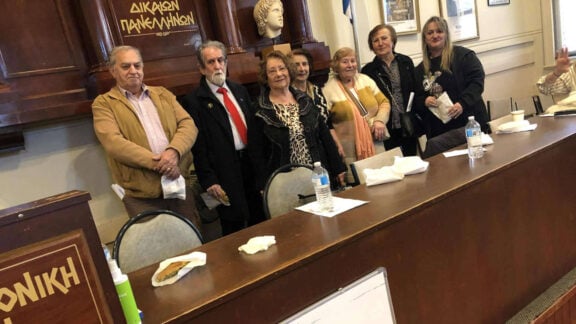On July 7, Prime Minister Kyriakos Mitsotakis announced, during the debate of the Ministerial Programmatic (Draft Bill) Statements in Greek parliament that during the new term of his government, he will introduce a bill to extend the right to vote in national Greek elections to all Greek citizens living abroad.
The Prime Minister said that this was a “multi-dimensional modernisation” and it was “ecumenical” aiming to “unite all Hellenes far beyond the borders of our homeland.”
Mitsotakis said that the initiative was a way to express “universal Hellenism, becomes for all of you, for all of us, a bet of consistency for all parties.”
The Greek Prime Minister, who heads the centre-right New Democracy, led his party to a landslide victory in the May 24 elections.
He now senses the opportunity to reform the existing rules applying to Greek citizens voting from abroad, given the uninspiring performance of all the left opposition parties in Greece’s election.
“We will bring to you, for public consultation, one law with one article, which will remove all obstacles concerning the vote of Greeks abroad, so that all our fellow citizens who are registered in the electoral rolls can participate in the political life of our homeland, wherever they may reside,” Mitsotakis said.
The left parties were opposed to extending the franchise to Greeks living abroad, without them having resided in Greece for at least two years in the last 35 years.
The complex eligibility requirements the left opposition insisted on made it difficult for those eligible to cast a vote while living abroad. One had to be already eligible to vote within Greece, to have the right to self-transfer to the “overseas” prefecture; eligible voters had to prove that during the past 35 years, they had lived in Greece for at least two.
Mitsotakis said that in his government’s first term, the initial step towards establishing the right to vote from abroad had “too many restrictions.”
“We secured the vote of 190 parliamentarians and not 200. So, today, the time has come, after testing the process in practice, to see how much consistency there is between words and deeds and for this draft law to be approved by 300 members of parliament,” Mitsotakis said.
Greece’s left parties such as SYRIZA and KKE were opposed to giving the right for Greeks abroad to vote from their place of residence. There is a view among the left that Greeks living abroad, and the Diaspora as a whole, tend to vote conservative. However, this view is based largely on assumption, not evidence.
In May, some of the Greeks living abroad voted for the first time in Greece’s elections without having to return. As many Greek citizens in Australia found out, the many restrictions frustrated their right to cast a vote. So, a woefully low number came out to vote especially in Melbourne, one of the largest Greek diaspora centres in the world.
The issue of too many restrictions was raised consistently across the community and in Neos Kosmos. Mitsotakis and his ministers, especially the General Secretariat for Hellenism Abroad and Public Diplomacy, were all too aware of the criticisms from Greek citizens and the Diaspora.
They seem equally attuned to the potential gains for New Democracy, and Greece when it comes to trade, or lobbying on behalf of Greece in Washington D.C., or Canberra, if Greek citizens abroad can vote without having to return to their electoral jurisdictions in Greece.
At the end of his announcement, Prime Minister Mitsotakis quoted one of Greece’s greatest 20th Century poets, Yiannis Ritsos who was twice nominated for a Nobel, and who won the Lenin Peace Prize for his work.
Mistotakis said that we all must “write the new chapter that opens in the country’s history” and recited the following verses of Ritsos’ epic poem about Hellenism and resistance to fascism, ‘Romiosini’.
“The time has come. Be prepared.” Because now, “each hour is our time”.
The Harvard-trained Mitsotakis was undoubtedly very aware of the irony of quoting Ritsos – an official member of the communist KKE and a fervent anti-fascist – to the remnants of the left-wing factions in the Greek parliament to make a point about universal Hellenism.









